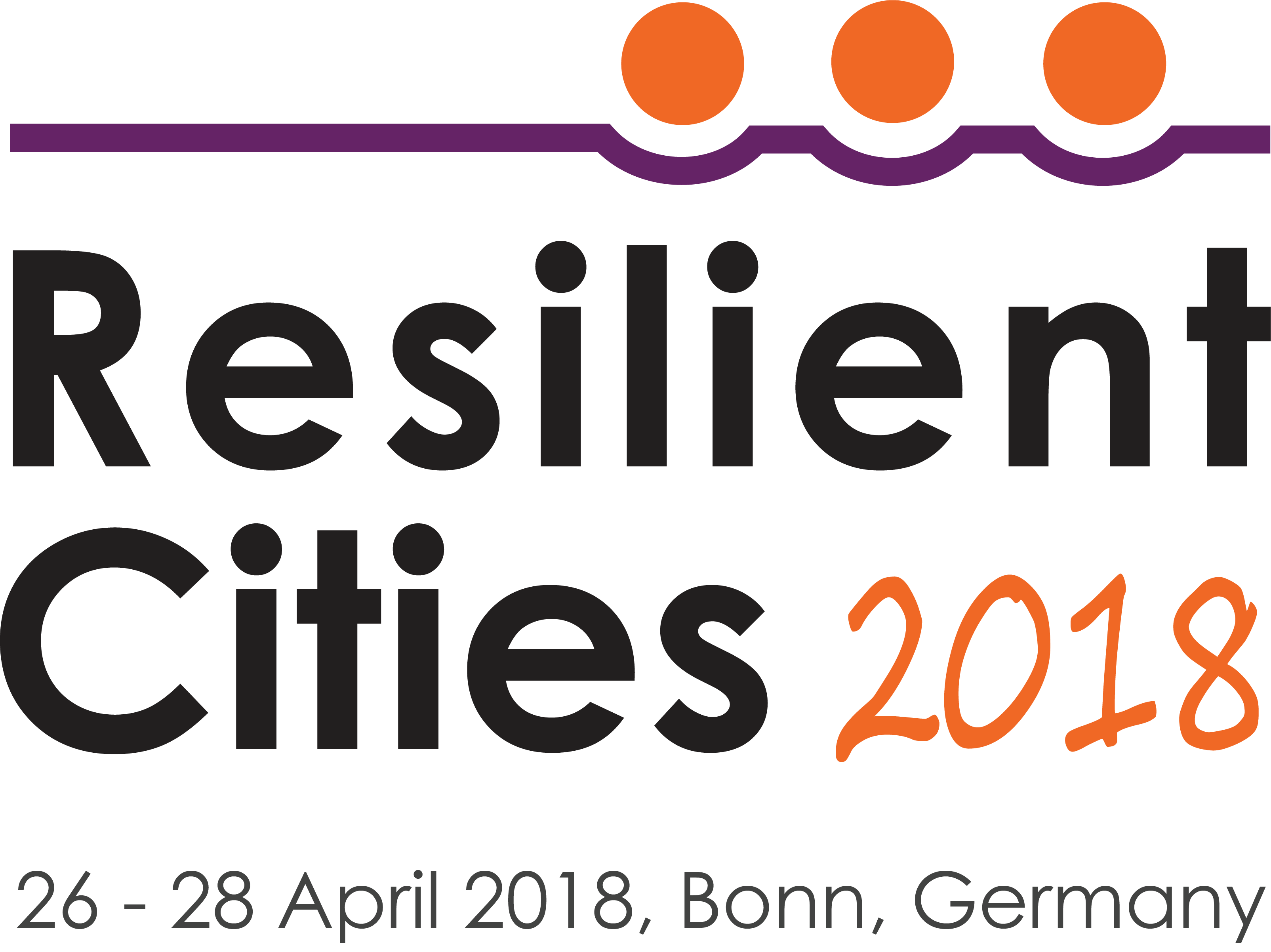Digitalization & Resilience
Critical reflection on urban digitalization and resilience
Congress contributions of special interest will be:
Keynote at the Opening Plenary by Ina Schieferdecker, Director of the Fraunhofer-Institut für Offene Kommunikationssysteme FOKUS, Berlin; Member of the German Advisory Council on Global Change (WBGU)
Session A5 – “The resilience of digital cities – Cybersecurity, data protection and risk management in the digitalization era” hosted by ICLEI- Local Governments for Sustainability
Keynote at the Outlook Plenary by Mr. Michael Glotz-Richter, Senior project manager ‘sustainable mobility’, Senate Dpt. for Environment, Construction and Transport, Bremen, Germany
The congress contributions will critically examine key topics such as data security and the resilience of critical infrastructure in an increasingly connected cityscape with state-of-the-art contributions from city leaders, private sector partners, and civil society stakeholders.
Opening plenary – The digital city – Can it be resilient?
Advances in digital technologies are increasingly transforming the way cities are operated and managed. They have altered physical (e.g. energy, water, waste, transportation) and social (e.g. governance, citizen participation, service provision) infrastructures. This brings new opportunities but also challenges and risks. From a resilience perspective, protecting critical infrastructure from cybersecurity threats and power outages will gain in importance as urban systems are becoming increasingly interconnected. In addition, sensitive data needs to be safeguarded to prevent theft, unauthorized access or inappropriate use thereof. With the amount of data increasing exponentially, however, preserving individual privacy has become another major challenge in the era of Big Data.
The Resilience of Digital Cities – Cybersecurity, data protection and risk management in the digitalization era
Advances in digital technologies are increasingly transforming the way cities are operated and managed. They have altered physical (e.g. energy, water, waste, transportation) and social (e.g. governance, citizen participation, service provision) infrastructure systems. This brings new opportunities but also challenges and risks. From a resilience perspective, protecting critical infrastructure from cybersecurity threats and power outages will gain in importance as urban systems are becoming increasingly interconnected. In addition, sensitive data needs to be protected to prevent theft, unauthorized access or inappropriate use thereof.
This session will start with a live-hacking demonstration and expert presentation to showcase how easily seemingly secure systems and data can be compromised. The ensuing panel discussion will provide a critical reflection of urban digitalization and its resilience-related risks and challenges. City representatives and experts will discuss what policies, strategies and concrete measures are needed to address them
Autonomous driving and its impact on urban resilience – Outlook Plenary
Self-driving-vehicle technologies are on the rise. Heralded as a disruptive innovation that will revolutionize our cities, autonomous driving promises to make our urban mobility systems safer and more efficient and increase citizens’ quality of life. While they offer a unique opportunity to transform the way we move, these emerging technologies are not risk-free. Relying on computer-powered technologies, advanced algorithms and machine learning makes autonomous vehicles prone to cyberattacks and malware. This contribution will spur the debate on autonomous driving and its related impact on urban resilience.
